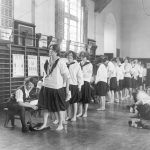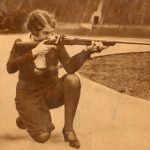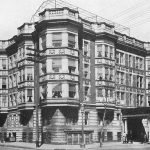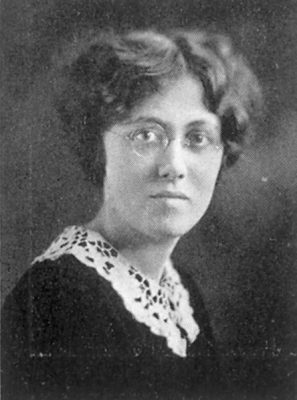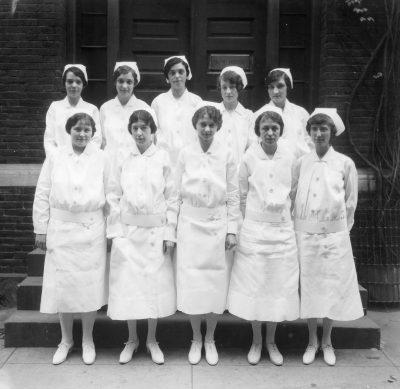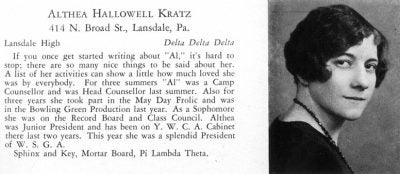| Name/Origin | Quotation | Picture |
|---|---|---|
| Editorial, The Pennsylvanian, 1921 | We are absolutely opposed to co-education at the University of Pennsylvania. Note well that we do not say we are opposed to co-education in general. And we do not say we are opposed to the higher education of women. In many cases we are not even opposed to Co-eds. | |
| A Co-Ed, 1925 | This is my first year at Pennsylvania and I like all my classmates. They are just wonderful, and I know if the boys on your paper and the other students would only take the trouble to get to know us and understand us you would think so, too. … I really can’t understand why you write so much against the co-eds when you don’t know them.
Treated as badly as we are, we all love Pennsylvania. … If the men did not look down on us so it would be simply wonderful. |
|
| Philadelphia Bulletin, 1923 | The embarrassment of sex . . . has apparently gone out of fashion, as least so far as the desire of learning is concerned. | |
| Marion Braungard, 1926 B.S. in Ed.; 1929 A.M. | Our four years at Pennsylvania have given us a fuller understanding of the business of living. Our studies, our social contacts, and the situations that confronted us, demanded discrimination and decision. The relative freedom of our student life made self-government necessary, and the responsibility developed our judgment and cleared our vision, so that we can see with less prejudice, and approach problems with greater discernment. | |
| Freshman Handbook, 1926-1927 | There are some people, students included, who take Pennsylvania for granted, but there are many of us who have wandered past College Hall at evening, have forgotten the roar of trolleys on Woodland Avenue, and have caught our breath with the wonder of it all. The feeling is one that we hesitate to mention even among our most intimate friends. | |
| Mary Monroe Search, Hostess of Bennett Club (campus club for women), 1922-1927 | To the Class of 1927 I extend a very hearty greeting. You came to Pennsylvania when the pioneer days for women were ending. But you have caught the spirit of those early women, and the work you have done for Pennsylvania will make your name a loving memory when you, too, are called a pioneer. The new traditions that are growing up around us have all felt your touch. The new regime for women will know your work and your ways. | |
| Althea Stauffer Kratz Hottel, 1929 B.S. in Ed.; 1934 A.M.; 1940 Ph.D.; 1959 LL.D. (honorary) Directress of Women, 1936-1943; Dean of Women, 1943-1959 |
Women have played a significant role in all phases of Pennsylvania development by virtue of their own capabilities. | |
| Althea Kratz Hottel, 1929 B.S. in Ed.; 1934 A.M.; 1940 Ph.D.; 1959 LL.D. (honorary); Directress of Women, 1936-1943; Dean of Women, 1943-1959 | I married a Pennsylvania graduate who had not realized there were women students on the campus even though we were both here at the same time. I then was dean of women at our university and he came to think differently in a short time. I tell these facts because they represent the attitudes and experiences of many Pennsylvania women of my generation who loved their university days in the heart of a great city with its cultural offerings; and where they had opportunities for leadership which pertained at the women’s colleges of our country in the second quarter of the twentieth century. I must not neglect to say, however, that some women students did feel they were second-class citizens. It is to a number of these that we must extend our appreciation for their constant pressures on appropriate powers that prevailed. |
Women at Penn: Quotations 1920-1929
Dedicated to the memory of Ruth Branning Molloy, B.S. in Ed. 1930

